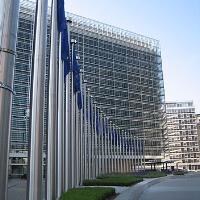(BRUSSELS) – A 2014 EU staff reforms package has achieved significant savings, says a new report from the European Court of Auditors, but has at the same time had negative consequences for human resources.
Some of the negative consequences could have been mitigated, at least in part, says the ECA, if reforms had been better prepared and monitored.
The EU institutions and agencies employ approximately 60,000 people in total. Their terms of employment are set in the “Staff Regulations of Officials and the Conditions of Employment of Other Servants of the European Union”. Around half of EU staff are employed by the Commission, which is responsible for proposing reforms to the staff regulations. Commission staff’s pay costs 3.2 billion a year, or around 2 % of the total EU budget.
During the negotiations for the 2014-2020 multiannual financial framework (MFF), the European Parliament, the Council and the Commission agreed different measures to reduce expenditure on staff and improve human resources management. This “2014 staff reforms package” included a 5 % cut in workforce, pay and pension freezes, as well as a revision of the staff regulations.
The auditors assessed the effectiveness of these measures, with a specific focus on the Commission, which accounts for 53% of the EU institutions’ workforce and for 58 % of their payroll budget. In particular, they examined how the challenge of achieving the dual objective of budgetary savings and HR improvements has been managed.
“Savings generated from the 2014 staff reforms go beyond expectations, but they are overshadowed by their impact on the workforce”, said Pietro Russo, the Member of the European Court of Auditors responsible for the report. “The HR implications of the cost-saving measures were not without negative consequences for both working conditions and the attractiveness of the EU institutions as an employer.”
The auditors found that the 2014 package is delivering significant savings for the EU budget. The direct budgetary impact on the 2014-2020 MFF alone is likely to be around 4.2 billion, which is more than was planned. And savings are likely to be even higher in the long-term, add the auditors. Changes in the retirement age, career structure and pensions will reduce EU administrative expenditure by over 19 billion by 2064. In other words, long-term spending is expected to fall by around 30 % on what it would have been without the 2014 reforms.
As for the impact on HR, the picture is more mixed. Changes in career structure have improved the link between pay, grade and responsibility, and the Commission’s workforce is becoming more gender balanced and flexible. However, the 2014 reforms have also led to less positive consequences for staff, as well as to additional challenges for human resources management, the auditors point out. Raising the retirement age to 66 and cutting recruitment have left the Commission with an ageing workforce. Furthermore, the increasing use of staff on short-term contracts has longer-term implications for knowledge management and business continuity. Finally, less favourable employment conditions have reduced job satisfaction and the attractiveness of working for the EU institutions. This comes at a time when the Commission is struggling to attract highly qualified, multilingual staff.
However, better preparation of the 2014 package could have helped mitigate its negative consequences, the auditors say. The choice of measures such as increasing working time and implementing the 5% reduction in posts was not preceded by an overall analysis of the problems to be addressed or an assessment of the likely impact on HR management. The Commission’s monitoring arrangements did not allow it to identify negative consequences, such as increasing workload, fully or in a timely manner, the auditors conclude.
Based on their findings, the auditors recommend that the European Commission:
- establish a workforce management plan;
- strengthen its monitoring and reporting of HR issues; and
- assess needs and potential impact before any further revision of the staff regulations.



